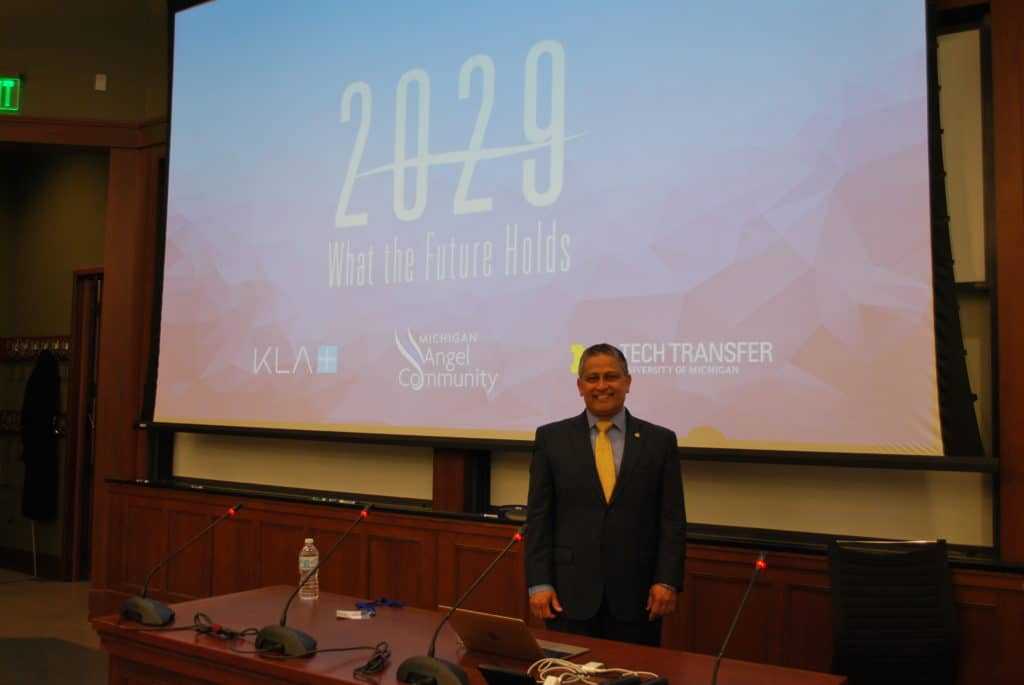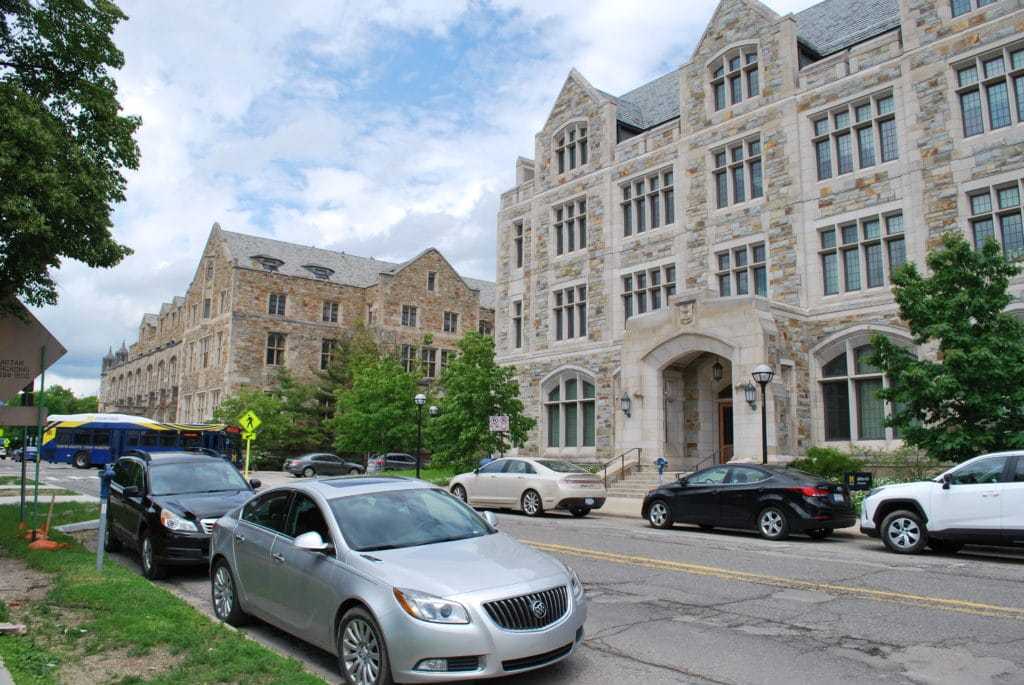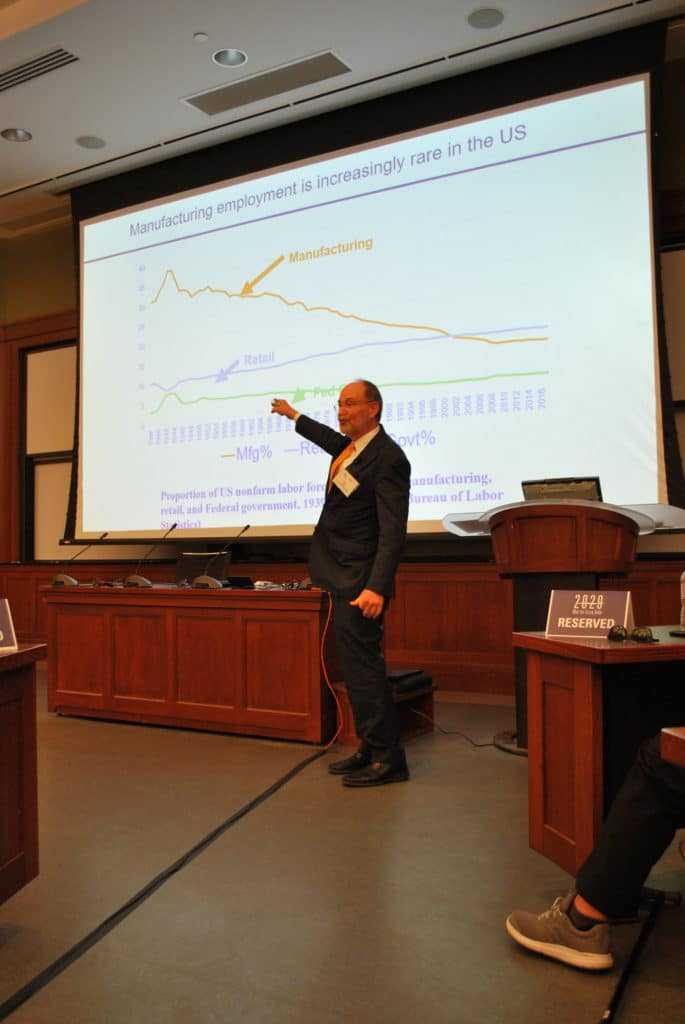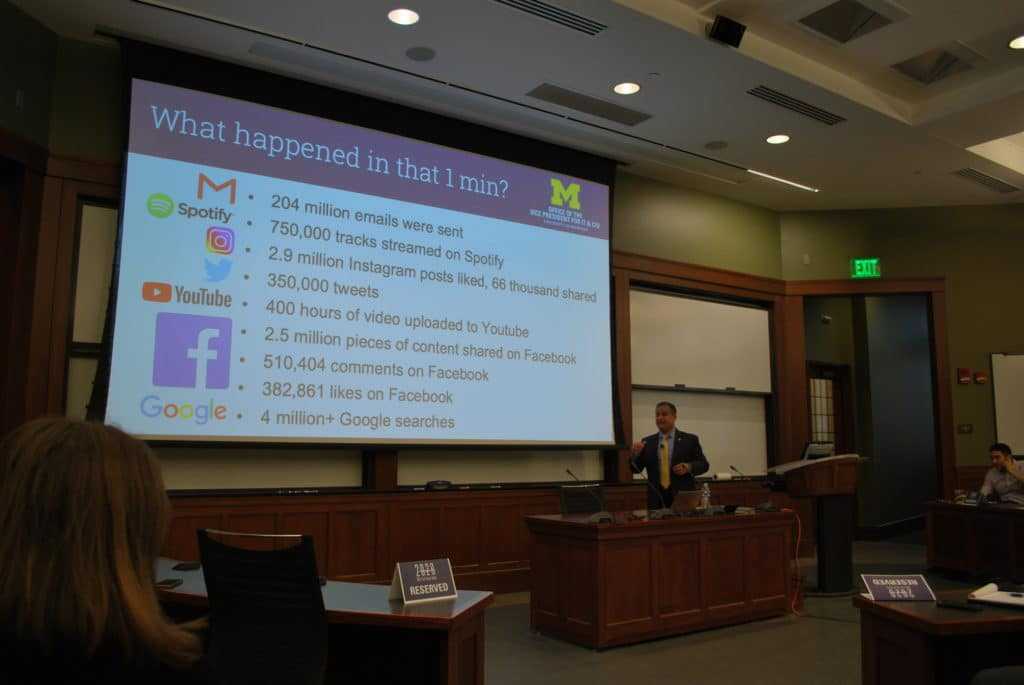a2Tech360 Behind the Scenes 2029: What The Future Holds
By Laura Cowan
Laura K. Cowan is a tech, business, and wellness journalist and fantasy author whose work has focused on promoting sustainability initiatives and helping individuals find a sense of connection with the natural world.
Ravi Pendse PhD, VP for IT and CIO at the University of Michigan, kicked off 2029: What The Future Holds with a keynote all about emerging trends in technology and culture.
Honestly, it's tricky, predicting the future. Would you listen to anyone who told you what to expect in 5 years, much less 10? We went into the a2Tech360 conference 2029: What The Future Holds with a teeny bit of skepticism since all we do is future tech and now tech and vaporware tech that will never exist but looks pretty on green design blogs. So. What does the future hold? Well, 2029, held at The University of Michigan Law School Jeffries Hall on campus, looked first at the past for clues.
Keynote speaker Ravi Pendse PhD is VP for for Information Technology and CIO with the University of Michigan, and he said the key to "what we can anticipate, what you need to be investing in now" is to look at the trends that reshaped our world over the last 10 years. "Smartphones gave rise to on-demand platforms," he said. "CIOs used to give you a tool and act like it was a gift from God. After the iPhone came out every one of us became a tech expert [on user experience]." And other companies flowed out of the smartphone revolution. "Uber is an on-demand platform. It's not so much about cars. It couldn't happen without the iPhone or Android," he said.
Jeffries Hall, part of the University of Michigan Law School where 2029 was held, sits in the foreground on campus, with the rest of the Law Quad in the background. Jeffries Hall is a host of popular Meetup a2NewTech, where new startups are pitched.
"Smartphones gave rise to on-demand platforms," Pendse said. "CIOs used to give you a tool and act like it was a gift from God. After the iPhone came out every one of us became a tech expert [on user experience]."
Instead of predicting trends, Pendse looked at trends to track and said that successful organizations will need to have a plan in place to address emerging technologies as they arise, specifically because it is so hard to predict. Other categories to keep an eye on in industry? Social media, of course. Robotics, AI and the like. And the Internet of Things, which Pendse says is about "the idea that anything you can sense with appropriate feedback you can control. If you can control it, you can change it."
Other categories to keep an eye on in industry? Social media, of course. Robotics, AI and the like. And the Internet of Things, which Pendse says is about "the idea that anything you can sense with appropriate feedback you can control. If you can control it, you can change it."
Speaker Jerry Davis shows the decline in manufacturing and how retail has not replaced it to boost employment.
This creates enormous data storage problems, something companies at the TU-Automotive Software conference in Detroit also discussed, such as Saferide's award-winning software that detects and helps address software vulnerabilities. It's a massive amount of information about all kinds of software bugs and patches to keep track of on a constant basis. And that leads to the issue of security and privacy, which Pendse said is a bigger issue behind the scenes even at a university than most people realize. "Every day there are millions of attempts to access unauthorized resources at the University of Michigan," he said. "Not hundreds of thousands. Millions."
So here's the problem. Not only is it difficult for speakers hailing from academia to predict industry trends, but it's hard for anyone to predict industry trends that far in advance. Other speakers including Intel Senior Director of Corporate Strategy Michael Trudeau, autonomous driving entrepreneur Moritz von Grotthuss and market research analyst Charlie Whelan of Frost and Sullivan suggested a future rich with sensors, augmented bodies, and shifts in car ownership and ride sharing. Trends of emerging technologies now run the gamut, but many of them are so disruptive that a good portion of the conference was given over to the topic of the work sector being disrupted and permanently changed by technology and a shrinking corporate landscape. University of Michigan Associate Dean for Business and Impact at the Ross School of Business Jerry Davis, who billed himself "Professor Buzzkill," said he didn't know what advice to give his 18-year-old beyond don't take pre-law and make sure you know basic coding, advice which his daughter roundly ignored anyway in favor of studying Mozart operas. He says that the work world has changed so much, and he gave various dire statistics to back this up, that we really can't give solid career advice to a young person like we used to.
"The shift from a manufacturing economy to a service economy has changed the nature of employment," Davis said.
What happened in the minute we stopped to play rock paper scissors.
"The shift from a manufacturing economy to a service economy has changed the nature of employment," he said. But, technology allows for a gig economy but tears up traditional work structures. Above all, he emphasized that IPOs are not up, they peaked in 1996 and are much fewer and further between today to the tune of 700 in 1996 and about 130 this last year, which isn't far off from where they started multiple decades ago. The number of companies traded on the stock market has dropped by half since 1991. And worst of all, employers that go public don't create many jobs, because the startup costs for new ventures are sometimes so low that few people are required to run big-earning operations.
"Diversity and inclusion is important," Pendse said. "It's not just about checking a box. It's about the survival of companies. Do you have the right team at the table? Speaking about experiences from different backgrounds? If not, you're leaving great ideas on the table."
What we would love to see is a roundtable of folks in industry discussing the behind-the-scenes reality of their corner of business in this manner. The broad trends are hard to predict. Obviously tech will lead the way, but where? No one knows. The world is changing so quickly, Pendse used as one visual aid the activity of asking the audience to play rock paper scissors for one minute. Then he put up a slide. "In that minute, the rest of the world was working," he joked, showing statistics for just how much data was sent here there and everywhere in a single minute of time.
2029, a2tech360, futuretech, jerry davis, ravi pendse, tech conference, tech predictions, tech trek 2019, university of michigan




